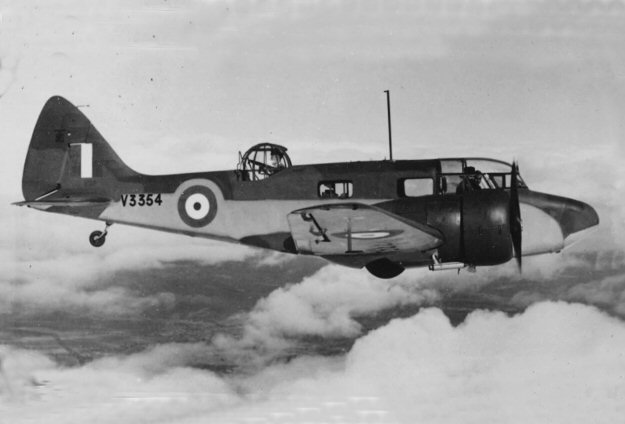Airspeed A.S. 10 Oxford V3354

Some 300 Oxford Mk 1s advanced trainers
were in operation by the RAF when war broke out in
1939. The final number constructed was a staggering
8,586. Initially in 1941 some 60 or so were
shipped out to Australia, although the total number finally used was
over 400. V3354 was one
of the
first 60, and is seen above flying over Australia in this shot from the
archives of the Goulburn
War
Memorial Museum. The Oxfords were never given Australian A-
type serials, and retained
their original RAF serials throughout their operation.
After the war, and oddly, the Australian DCA
would not
permit them to be sold on the civilian market.
Ostensibly because they were of glued
wooden construction. Although this rule would apply to all wooden
aircraft eventually, in the mean-
time in the immediate
post war period there were many examples of wood-glued aircraft
imported,
namely Percival Proctors and all the Miles types. This mandatory
suspension of all all-wood bonded
aircraft
was not enforced until 1962, so theoretically Oxfords could have been
used by civil operators
for
almost twenty years. In the event they were sold off as
scrap, some being purchased for as little
as five
quid or so. (There were a number of them at rotting in the long
grass Bankstown in the early
1950s when I
made my visits). Anyway, because of this no
samples of Oxfords are to be found
today in Australia In fact, I don't think there are any in
museums, either.
